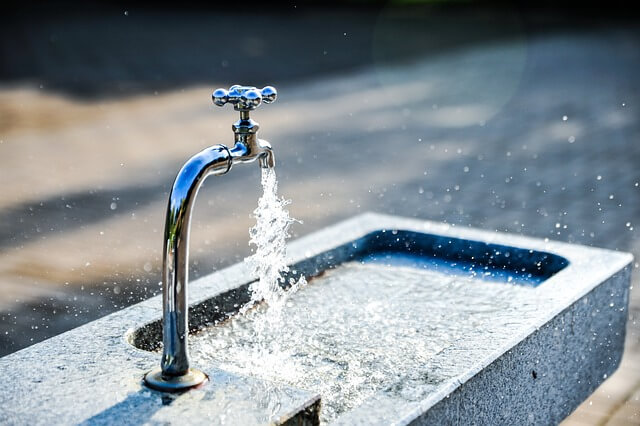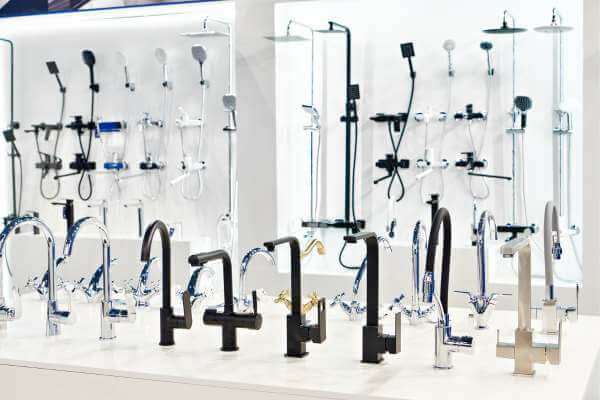Water is a basic necessity for human life, and it is essential for many industrial processes as well. However, not all water is created equal, and one of the most significant differences between types of water is whether it is hard or soft. Hard water is a common term used to describe water that has a high mineral content, particularly calcium and magnesium. In this article, we will explore what hard water is, what causes it, and how it can affect your daily life.
What is Hard Water?
Hard water is water that contains high levels of dissolved minerals, especially calcium and magnesium. When water flows through rock formations or soil, it picks up minerals like calcium and magnesium, which become dissolved in the water. The hardness of water is determined by the amount of these minerals present. Water that has less than 60 milligrams per liter (mg/L) of these minerals is considered soft, while water that has more than 120 mg/L is considered hard.
Hard water is not harmful to human health, and in fact, some studies suggest that drinking hard water may have some benefits for cardiovascular health. However, hard water can cause a number of problems for households and businesses, which we will discuss in more detail below.
What Causes Hard Water?
As we mentioned earlier, hard water is formed when water comes into contact with rock formations or soil that contains minerals like calcium and magnesium. The type of rock formations and soil present in a particular region determines the level of hardness in the water supply.
Another factor that can contribute to hard water is the presence of dissolved iron, which can cause water to take on a reddish-brown hue and have a metallic taste. Water that contains high levels of iron is also known as “red water.”
How Does It Affect Daily Life?
Hard water can have a number of negative effects on daily life. One of the most common complaints is that it leaves behind a white, chalky residue on surfaces like faucets, sinks, and showerheads. This residue is caused by the minerals in the water, which can build up over time and become difficult to remove.
It can also make soap less effective, leading to the need for more soap to achieve the same level of cleaning. This can be frustrating for households and businesses alike, as it can lead to increased costs for cleaning products.
In addition to these aesthetic and practical issues, hard water can also cause damage to pipes and appliances over time. The minerals in hard water can build up inside pipes, leading to reduced water flow and even clogs. Appliances like washing machines and dishwashers that use hard water can also experience problems, such as decreased efficiency and the need for more frequent repairs.
How Can It be Treated?
There are a number of treatment options available for hard water, depending on the severity of the problem. One of the most common methods is the use of a water softener, which works by exchanging the calcium and magnesium ions in the water for sodium or potassium ions. This process reduces the level of hardness in the water and can help prevent the negative effects of hard water.
Another option is the use of water filtration systems, which can remove minerals and other impurities from the water supply. These systems can be installed at the point of use, such as under a sink, or can be installed to treat the entire water supply for a household or business.
FAQ
How do you know if you have hard water?
Pour water into the bottle until it reaches one-third of its capacity, then add a small amount of pure liquid soap and shake the bottle vigorously for a few seconds. If the water doesn’t produce a sufficient amount of frothy bubbles and appears cloudy or milky, it indicates that the water is hard.
Is hard water safe to drink?
If you’re concerned about whether it can cause illness, it’s important to note that hard water is not a health hazard. Although hard water may have an unpleasant taste due to the excess minerals, it is generally safe for consumption.
Is tap water hard or soft water?
Water that originates from natural sources typically has a soft composition. Nonetheless, the water you receive at your tap undergoes a process of collecting minerals like chalk, lime, calcium, and magnesium, resulting in hard water.
Does boiling hard water make it soft?
One of the most efficient methods of softening hard water is by boiling it. Boiling causes the minerals that cause hardness in the water, such as calcium and magnesium, to settle at the bottom of the container.
Conclusion
In conclusion, hard water is water that contains high levels of minerals like calcium and magnesium. While it is not harmful to human health, it can cause a number of problems for households and businesses, including the buildup of mineral deposits, reduced soap effectiveness, and damage to pipes and appliances. Fortunately, there are a number of treatment options available, including water softeners and filtration systems, that can help mitigate the negative effects of hard water and ensure that your water supply is of the highest quality. If you suspect that you have hard water, it is important to have your water tested by a professional to determine the level of hardness and the best treatment options for your particular situation.
Read also: How Do You Remove Calcium Build Up on Faucet?


 Hi, my name is Debra Klein and I love modern kitchen designs! As a product reviewer, it’s my mission to help homeowners choose the right modern kitchen accessories for their homes. I want to give them the best solution possible so they can make the best decision for their needs. Thanks for reading!
Hi, my name is Debra Klein and I love modern kitchen designs! As a product reviewer, it’s my mission to help homeowners choose the right modern kitchen accessories for their homes. I want to give them the best solution possible so they can make the best decision for their needs. Thanks for reading!




